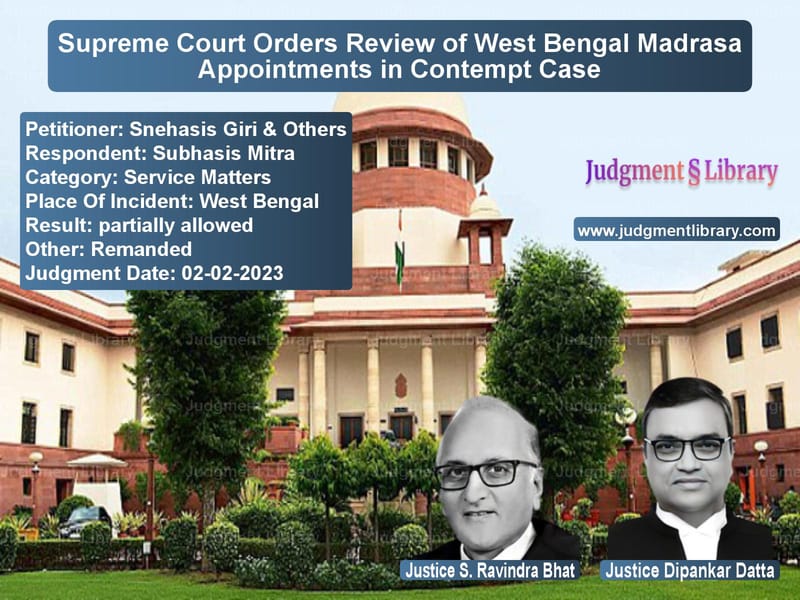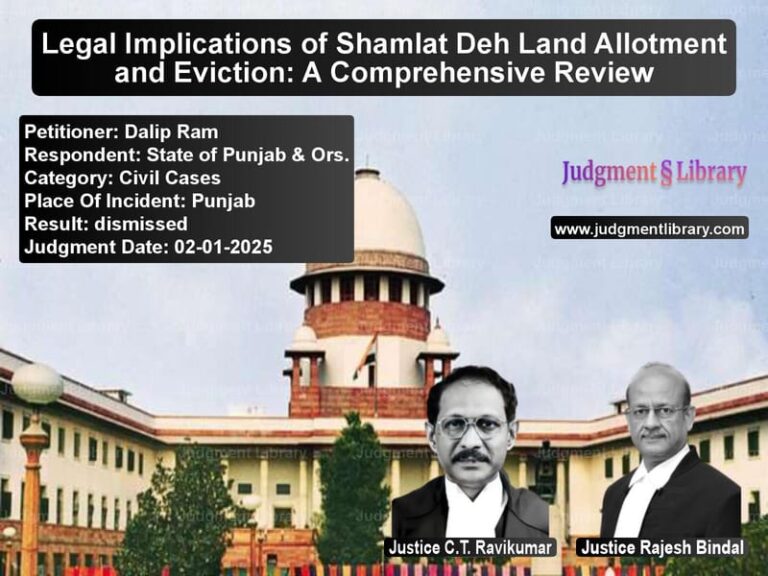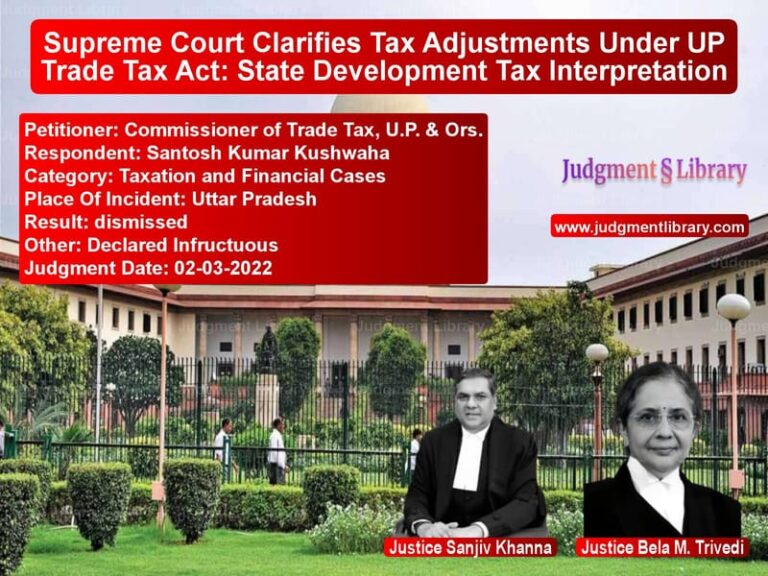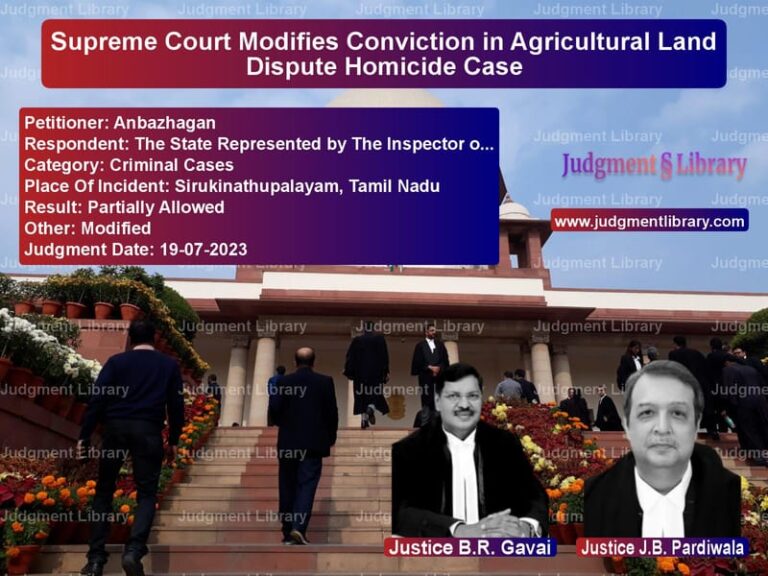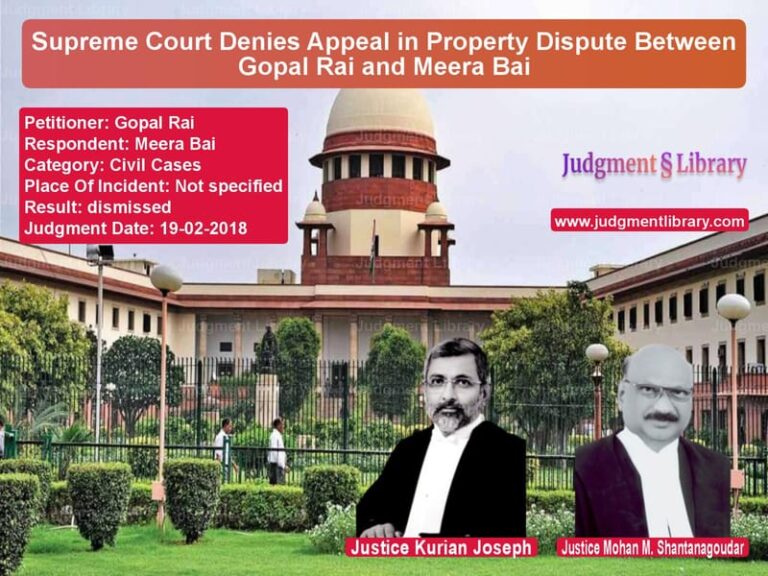Supreme Court Orders Review of West Bengal Madrasa Appointments in Contempt Case
The Supreme Court of India, in its judgment dated February 2, 2023, ruled on a significant contempt petition concerning the appointment of teachers in aided madrasas in West Bengal. The case, Snehasis Giri & Others vs. Subhasis Mitra, arose from allegations that the State had failed to comply with the Court’s previous ruling on the validity of teacher appointments under the West Bengal Madrasa Service Commission Act, 2008. The Court ordered a review of the appointments to ensure compliance with statutory norms.
Background of the Case
The case stems from a long-standing dispute over the recruitment process in West Bengal’s aided madrasas. The primary contention was whether appointments made by these institutions should be subject to government oversight through the West Bengal Madrasa Service Commission. The Supreme Court had previously ruled in Shaikh Md. Rafique vs. Managing Committee, Conti Rahamania High Madrasah that the Act’s provisions regulating teacher appointments were valid and constitutional.
Despite this ruling, allegations surfaced that the State authorities had failed to properly implement the Court’s decision. The contempt petitioners argued that even after the Supreme Court’s ruling, they were being denied salaries and service benefits due to procedural delays.
Arguments by the Petitioners
- They had been recruited in compliance with the Court’s ruling but were denied salaries and benefits.
- The State authorities failed to implement the judgment in Shaikh Md. Rafique properly.
- Many teachers continued to work without pay despite the ruling recognizing their appointments as valid.
- The refusal to regularize them amounted to deliberate disobedience of the Supreme Court’s order.
Arguments by the Respondents (State of West Bengal)
- The government required time to verify the credentials of the appointees.
- The judgment in Shaikh Md. Rafique did not automatically grant service benefits; appointments needed to comply with statutory norms.
- Some appointees may not have met the required qualifications, and further scrutiny was necessary.
- The contempt jurisdiction could not be used to expand the scope of the original judgment.
Supreme Court’s Observations and Judgment
The Supreme Court acknowledged the petitioners’ concerns but also recognized the State’s need to verify appointments. The Court ruled that:
- The State must conduct a thorough verification of the petitioners’ eligibility and service conditions.
- The refusal to release salaries without scrutiny was justified to prevent irregular appointments.
- To expedite the process, a three-member review committee was constituted under Article 142 of the Constitution.
The Court ordered the committee, headed by a retired High Court judge, to examine:
- Whether the madrasas in question were recognized institutions at the time of the appointments.
- Whether the appointees met the prescribed qualifications for their respective posts.
- If due process was followed in the recruitment, including publication of vacancies and adherence to roster norms.
- Whether the appointees actually worked at the institutions and were not backdated recruits.
Key Takeaways from the Judgment
- Verification of Appointments: The Court emphasized that statutory compliance is essential in public employment.
- Judicial Oversight: The appointment process must adhere to transparent recruitment norms.
- Limited Scope of Contempt Jurisdiction: The Court clarified that contempt petitions cannot be used to expand judicial orders.
Implications of the Judgment
The ruling balances judicial oversight with administrative scrutiny, ensuring that teacher appointments are fair and merit-based. The review process is expected to bring clarity to the employment status of madrasa teachers in West Bengal.
Conclusion
The Supreme Court’s decision ensures that teacher appointments in aided madrasas comply with legal norms. By mandating a thorough review, the ruling safeguards both the rights of the appointees and the integrity of the education system. This case sets a precedent for similar disputes involving public sector employment and judicial oversight.
Petitioner Name: Snehasis Giri & Others.Respondent Name: Subhasis Mitra.Judgment By: Justice S. Ravindra Bhat, Justice Dipankar Datta.Place Of Incident: West Bengal.Judgment Date: 02-02-2023.
Don’t miss out on the full details! Download the complete judgment in PDF format below and gain valuable insights instantly!
Download Judgment: snehasis-giri-&-othe-vs-subhasis-mitra-supreme-court-of-india-judgment-dated-02-02-2023.pdf
Directly Download Judgment: Directly download this Judgment
See all petitions in Employment Disputes
See all petitions in Public Sector Employees
See all petitions in Recruitment Policies
See all petitions in Judgment by S Ravindra Bhat
See all petitions in Judgment by Dipankar Datta
See all petitions in partially allowed
See all petitions in Remanded
See all petitions in supreme court of India judgments February 2023
See all petitions in 2023 judgments
See all posts in Service Matters Category
See all allowed petitions in Service Matters Category
See all Dismissed petitions in Service Matters Category
See all partially allowed petitions in Service Matters Category

